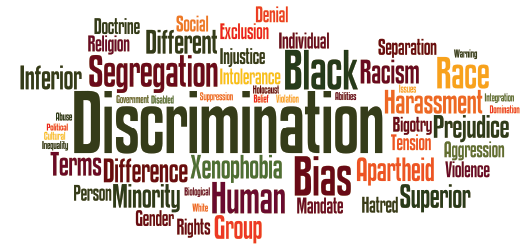
Nigerian immigration law, primarily governed by the Immigration Act of 2015, regulates the entry, residency, and employment of immigrants within the country. While the Act provides comprehensive procedures for managing immigration, it also includes provisions designed to combat discrimination and xenophobia against immigrants. This article explores the ways in which Nigerian immigration law addresses these critical issues and the broader legal framework that supports these efforts.
Legal Framework for Immigration in Nigeria
The Immigration Act of 2015 serves as the cornerstone of Nigerian immigration law. This Act delineates the rights and responsibilities of immigrants, as well as the authority and duties of the Nigerian Immigration Service (NIS). It establishes the legal basis for various aspects of immigration management, including the issuance of visas, residence permits, and the procedures for deportation. The Act aims to streamline immigration processes and ensure that they are conducted in an orderly and lawful manner.
Anti-Discrimination Provisions
The legal framework for addressing discrimination and xenophobia against immigrants in Nigeria is supported by several key provisions:
1. Constitution of Nigeria
The Nigerian Constitution, particularly Section 42, provides a broad prohibition against discrimination based on ethnic group, place of origin, sex, religion, or political opinion. Although this section does not explicitly address immigrants, its wide-ranging scope covers all persons within Nigeria’s jurisdiction. Consequently, immigrants are afforded a degree of protection against discriminatory practices under this constitutional provision.
2. Immigration Act of 2015
While the Immigration Act of 2015 does not directly address issues of discrimination and xenophobia, it incorporates mechanisms that inherently discourage such practices:
a. Fair Processing of Applications
The Act mandates that applications for visas, permits, and other immigration-related processes must be handled impartially. This includes ensuring that decisions are made without prejudice based on nationality or ethnic background. By emphasizing non-discriminatory practices in the processing of applications, the Act aims to promote fairness and equal treatment for all applicants.
b. Rights of Residence and Employment
The Act outlines clear guidelines for the rights of immigrants to reside and work in Nigeria. By standardizing these processes, the Act reduces the potential for discriminatory practices in areas such as employment and residency. It establishes a framework that aims to provide immigrants with predictable and fair conditions for their stay and work in Nigeria.
Enforcement and Accountability
The effective enforcement of anti-discrimination measures and the protection of immigrants’ rights are essential for addressing issues of xenophobia and discrimination:
1. Role of the Nigerian Immigration Service (NIS)
The NIS is tasked with enforcing immigration laws and safeguarding the rights of immigrants. It is responsible for ensuring that immigration officers adhere to principles of fairness and non-discrimination in their interactions with immigrants. The NIS also serves as a channel for receiving and addressing complaints and grievances from immigrants, offering a formal mechanism for redress in cases where discrimination or xenophobia occurs.
2. Legal Recourse
Immigrants who experience discrimination or xenophobia have the option to seek legal redress through Nigerian courts. The judiciary plays a critical role in interpreting and enforcing anti-discrimination laws, including those that affect immigrants. This judicial oversight provides immigrants with a means to challenge discriminatory practices and seek justice, reinforcing the legal protections afforded to them under Nigerian law.
Challenges and Areas for Improvement
Despite the existing legal provisions, several challenges remain in fully addressing discrimination and xenophobia against immigrants in Nigeria:
1. Awareness and Education
There is a significant need for increased awareness and education about the rights of immigrants and the importance of non-discrimination among the public and immigration officials. Enhancing understanding and awareness can help mitigate discriminatory attitudes and practices, fostering a more inclusive environment.
2. Explicit Anti-Discrimination Laws
While current laws offer some degree of protection, there is a need for more explicit anti-discrimination provisions within the Immigration Act itself. Clearer legal language and dedicated anti-discrimination clauses would provide stronger and more specific protections against xenophobia and discriminatory behavior.
3. Strengthening Enforcement Mechanisms
Improving the capacity of the NIS to monitor and enforce anti-discrimination provisions is crucial. This includes investing in training for immigration officers to ensure they are equipped to handle discrimination issues effectively and establishing more robust procedures for managing complaints and grievances.
Conclusion
The Nigerian immigration law framework, anchored by the Immigration Act of 2015 and supported by constitutional provisions, provides a foundation for addressing discrimination and xenophobia against immigrants. While the legal framework offers some protection, there are opportunities for improvement in terms of explicit anti-discrimination measures and enhanced enforcement mechanisms. By focusing on increasing awareness, strengthening legal provisions, and improving enforcement, Nigeria can foster a more inclusive and equitable environment for immigrants, aligning with its constitutional values and international human rights standards.
Contact Us
For premier Understanding of Immigation Law, contact Chaman Law Firm today. Our offices are conveniently located in Lagos, FCT Abuja, Ogun State, and the UK. We are readily available to assist you with your legal needs. Whether you require consultation, representation, or ongoing legal support, Chaman Law Firm is your trusted partner in navigating Immigration law in Nigeria.
Call us at 08065553671 or email us at info@chamanlawfirm.com to schedule a consultation.
- Visa and Immigration Policy
- Refugee and Asylum Law
- Employment-Based Immigration Law
- Family-Based Immigration Law
- Citizenship and Naturalization Law
- Deportation and Removal Proceedings
- Immigration Compliance and Enforcement
- International Migration Law
- Human Rights and Immigration Law
- Immigration Appeals and Judicial Review
Chaman Law Firm: Your Trusted Legal Partner in Immigration Law
By choosing Chaman Law Firm, you are selecting a team of dedicated professionals committed to providing exceptional legal services tailored to your unique needs. Let us be your advocate and guide in the complex world of Immigration law, ensuring your interests are protected and your goals are achieved.

